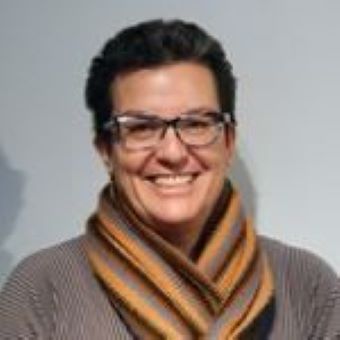Learning Activism From Susan Weiss
Dec. 9, 2013
By Lila Kagedan
As an Orthodox teenager, committed and enthusiastic feminist and newly minted high school graduate from a small town, I found myself studying in Israel at a yeshiva for women for what I thought would be a year of the ultimate Jewish learning experience. I planned to immerse in rigorous study of Jewish texts in a beit midrash, study hall, filled with the voices of women. I excitedly anticipated this year from a very young age and set my sights on what was, to my mind, the best place to study with an unparalleled faculty in a community of what I imagined to be like-minded young women.
I also imagined, when planning for this year and carefully selecting an institution that I would find a spirit of activism, and a shared commitment among the students to discuss and engage in pressing issues relating to women and to the experience of women in the Jewish community and beyond.
 This is where Susan Weiss entered my life and changed it in ways that she may not even know.
This is where Susan Weiss entered my life and changed it in ways that she may not even know.
While the yeshiva provided an amazing cohort of brilliant and passionate women, it was Susan Weiss who created the activist experience for me that I had hoped to find there, that I had dreamed of, that inspired me and that truly led me into a life of activism and commitment to studying and serving women, specifically Jewish women.
It all started when I wandered into her basement office which was housed at the Yeshiva. There was a small sign on the door that read Yad L’Isha and it piqued my curiosity. I was devouring books on women and Jewish law at the time and was curious. I remember seeing Susan surrounded by stacks of papers and books sitting behind a small desk. There were posters on the walls which called for justice for agunot (women chained to dead marriages by husbands who won't grant a religious divorce known as a "get") and her phone was ringing off the hook. I timidly knocked on her door and she raised her eyes to acknowledge me while answering a phone call and writing a note on a nearby notepad, She waved me in warmly. We began talking about her work and I was immediately impressed with her energy and spirit as well as her unwavering commitment to women's rights as human rights.
Susan so profoundly impacted my life that a main undergraduate focus of mine, both scholastically and socially, largely surrounded women and Jewish law. When I returned to Israel later to study at the Hebrew University, once more I contacted Susan Weiss to study with her and volunteer for her in a variety of research areas.
Susan gave me a vocabulary for the feelings I had long been feeling regarding the mistreatment of Jewish women and she was actually doing something about it. She didn't lament the plight of agunot, rather she decided to work towards changing the law. This experience of Jewish study, leading to the eradication of injustice, was a revelation. Susan Weiss truly embodied the concept of "being the change we wish to see in the world" and continues to inspire me to do the work that so desperately needs to be done to fight injustice and to support women. Her passion and dedication for advocating for women motivates me daily in my work, writing and research.
Please join me in welcoming Susan Weiss to Brandeis at 7 p.m. Thursday, Dec. 12. Come and be inspired by her as I have been.
Lila Kagedan is a research associate at the HBI Project on Gender, Culture, Religion and Law Research Associate.
As part of a collaboration between the HBI’s Project on Gender, Culture, Religion and the Law and the School of Law at the School of Oriental and African Studies, supported by the Bridging Voices Program of the British Council, we present a series of invited reflections on the intersection of Gender, Religion and Equality in Public Life from activists and scholars around the world. Contributors have been asked to reflect upon the ways in which conflicts over gender, religion and participation impact their work and inform their understanding of events in the news. They are particularly asked to consider how religious norms around gender shape civil policy-making, adjudication and women’s capacity to fully participate in public political and ritual life.